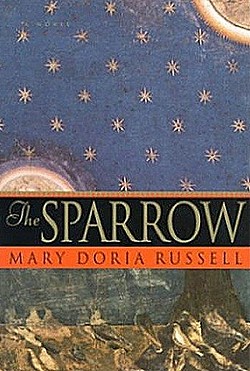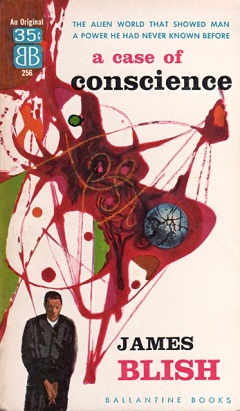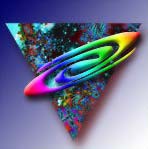Plot summary
Father Emilio Sandoz is a Jesuit priest who has returned to Earth and is recovering from his experiences on the planet Rakhat (detailed in The Sparrow). He believes himself to be the only survivor of a disastrous mission to Rakhat that led to a massacre of a village of herbivore Runa people by their carnivorous Jana'ata rulers, which in turn sparked a Runa revolution.
This news caused a rift between the Society of Jesus and the rest of the Catholic Church, and the Jesuits are determined to return to Rakhat and help the Runa. Emilio agrees to teach the members of the second Jesuit expedition to speak the Runa and Jana'ata languages, but refuses to accompany them. He falls in love with a divorced mother named Gina and is released from the priesthood, intending to marry her. Gina's ex-husband Carlo, who is working for the Jesuits and the Vatican, kidnaps Emilio and imprisons him on a spaceship bound for Rakhat.
Sofia Mendes Quinn, a member of the first mission to Rakhat, survived being attacked by the Jana'ata in The Sparrow. She was pregnant at the time, and gives birth to a son, Isaac. Sofia supports the Runa in their revolution and becomes a Joan of Arc figure for them.
The Jana'ata merchant Supaari, who also appeared in the first novel, fulfills his goal of marrying and beginning a family. However, he soon realizes that he cannot trust his brother-in-law, the Reshtar (third-born prince) Hlavin Kitheri. Supaari flees the city with his baby daughter Ha'anala. They find sanctuary in the Runa village that he had previously traded with, and where he had befriended the first human landing party.
The Runa have been bred for many centuries as not only servants but food for the Jana'ata, and they are willing to sacrifice themselves to feed Suparri and his child. He refuses their offer and instead joins in their revolution, working as a spy against the other Jana'ata. Sofia educates his daughter Ha'anala alongside her own son Isaac, who is autistic. One day, Isaac runs away. Ha'anala follows him, and they find a group of Jana'ata people living in the N'Jarr Valley and stay with them.
When Emilio Sandoz and the Jesuit mission finally arrive on Rakhat, they find that the Runa revolution has succeeded and most of the Jana'ata have been wiped out. Sofia is still searching for her son Isaac, who is now 40. She learns that he is in the N'Jarr Valley and sends Runa troops there, believing that he is a captive. Isaac has actually remained with Ha'anala in the valley by choice, working on a long-term project using his mother's old computer tablet. The Jana'ata and Runa in the valley are trying to build a new culture that will allow both species to live in peace. Yet the Jana'ata of the valley face starvation, as they will not eat their Runa neighbors but face capture by outside Runa troops if they leave the valley to hunt game animals.
The Jesuit Danny Iron Horse, a Lakota, suggests arranging an Indian reservation-like setup for the remaining Jana'ata on Rakhat. Emilio returns to earth accompanied by a Jana'ata poet. Isaac stays in the valley with Ha'anala's children and continues his mysterious project, creating music by overlapping the genomes of all three sentient species, and finds patterns that he believes are evidence of the existence of God.

The Color Purple is a 1982 epistolary novel by American author Alice Walker that won the 1983 Pulitzer Prize for Fiction and the National Book Award for Fiction.

Mary Doria Russell is an American novelist.
Sarah Zettel is an American author, primarily of science fiction. Her first short story was published in Analog Science Fiction and Fact in 1991. Zettel's novels have won multiple awards, including the Philip K. Dick Award and the Locus Award for Best First Novel, and positive reviews from critics. Her first novel Reclamation was published in 1996 and her second novel Fool's War in 1997. She has written romance novels and mysteries under the pseudonym Darcie Wilde, and the novel Bitter Angels as C. L. Anderson.

The Sparrow (1996) is the first novel by author Mary Doria Russell. It won the Arthur C. Clarke Award, James Tiptree Jr. Award, Kurd-Laßwitz-Preis and the British Science Fiction Association Award. It was followed by a sequel, Children of God, in 1998. The title refers to Gospel of Matthew 10:29–31, which relates that not even a sparrow falls to the earth without God's knowledge thereof.

Nalo Hopkinson is a Jamaican-born Canadian speculative fiction writer and editor. Her novels – Brown Girl in the Ring (1998), Midnight Robber (2000), The Salt Roads (2003), The New Moon's Arms (2007) – and short stories such as those in her collection Skin Folk (2001) often draw on Caribbean history and language, and its traditions of oral and written storytelling.

Nicola Griffith is a British-American novelist, essayist, and teacher. She has won the Washington State Book Award, Nebula Award, James Tiptree, Jr. Award, World Fantasy Award and six Lambda Literary Awards.

Suzy McKee Charnas was an American novelist and short story writer, writing primarily in the genres of science fiction and fantasy. She won several awards for her fiction, including the Hugo Award, the Nebula Award and the James Tiptree Jr. Award. A selection of her short fiction was collected in Stagestruck Vampires and Other Phantasms in 2004. The Holdfast Chronicles, a four-volume story written over the course of almost thirty years was considered to be her major accomplishment in writing. The series addressed the topics of feminist dystopia, separatist societies, war, and reintegration. Another of her major works, The Vampire Tapestry, has been adapted into a play called "Vampire Dreams".

A Case of Conscience is a science fiction novel by American writer James Blish, first published in 1958. It is the story of a Jesuit who investigates an alien race that has no religion yet has a perfect, innate sense of morality, a situation which conflicts with Catholic teaching. The story was originally published as a novella in 1953, and later extended to novel-length, of which the first part is the original novella. The novel is the first part of Blish's thematic After Such Knowledge trilogy and was followed by Doctor Mirabilis and both Black Easter and The Day After Judgment.

Esther Mona Friesner-Stutzman, née Friesner is an American science fiction and fantasy author. She is also a poet and playwright. She is best known for her humorous style of writing, both in the titles and the works themselves. This humor allows her to discuss with broader audiences about issues like gender equality and social justice.

The Gaylactic Spectrum Awards are given to works of science fiction, fantasy and horror that explore LGBT topics in a positive way. Established in 1998, the awards were initially presented by the Gaylactic Network, with awards first awarded in 1999. In 2002 the awards were given their own organization, the Gaylactic Spectrum Awards Foundation.

Ellen Klages is an American science, science fiction and historical fiction writer who lives in San Francisco. Her novelette "Basement Magic" won the 2005 Nebula Award for Best Novelette. She had previously been nominated for Hugo, Nebula, and Campbell awards. Her first (non-genre) novel, The Green Glass Sea, was published by Viking Children's Books in 2006. It won the 2007 Scott O'Dell Award for Historical Fiction. Portable Childhoods, a collection of her short fiction published by Tachyon Publications, was named a 2008 World Fantasy Award finalist. White Sands, Red Menace, the sequel to The Green Glass Sea, was published in Fall 2008. In 2010, her short story "Singing on a Star" was nominated for a World Fantasy Award. In 2018 her novella Passing Strange was nominated for the Mythopoeic Fantasy Award for Adult Literature.

Kelley Eskridge is an American writer of fiction, non-fiction and screenplays. Her work is generally regarded as speculative fiction and is associated with the more literary edge of the category, as well as with the category of slipstream fiction.
"The Star" is a science fiction short story by English writer Arthur C. Clarke. It appeared in the science fiction magazine Infinity Science Fiction in 1955 and won the Hugo Award in 1956. It is collected in Clarke's 1958 book of short stories The Other Side of the Sky, and it was reprinted in the January 1965 issue of Short Story International as the lead-off story.

12374 Rakhat (prov. designation: 1994 JG9) is a background asteroid from the central region of the asteroid belt, approximately 4.5 kilometers (2.8 miles) in diameter. It was discovered on 15 May 1994, by American astronomer and software engineer Charles de Saint-Aignan at the Palomar Observatory in California, United States. The asteroid was named for the fictional planet "Rakhat" in the novel The Sparrow
Nancy Springer is an American author of fantasy, young adult literature, mystery, and science fiction. Her novel Larque on the Wing won the Tiptree Award in 1994. She also received the Edgar Award from the Mystery Writers of America for her novels Toughing It in 1995 and Looking for Jamie Bridger in 1996. Additionally, she received the Carolyn W. Field Award from the Pennsylvania Library Association in 1999 for her novel I am Mordred. She has written more than fifty books over a career that has spanned nearly four decades.

The Gaylactic Network is a North American LGBT science fiction fandom organization. It has several affiliate chapters across the United States and Canada, with a membership of LGBT people and friends, sharing an interest in science fiction, fantasy, horror, comics and role-playing games.
Amanda Downum is an American fantasy author currently living in Austin, Texas. She was born on July 15, 1979, in Virginia. She is most known for her necromancer chronicles: The Drowning City, The Bone Palace, and Kingdoms of Dust. Downum’s books consist of themes relating to identity, gender roles and sexuality, death, secrets and social stratification. She was nominated for the James Tiptree, Jr. Award in 2010.
Hugh Nissenson was an American author. Nissenson drew heavily on his Jewish background in his writing, exploring themes of mysticism, Israel, and the Holocaust.

Planetfall is a 2015 science fiction novel by British writer Emma Newman. It was first published in the United States as a paperback original in November 2015 by Roc Books, and in the United Kingdom by Gollancz in paperback in February 2018. An audio edition of the book, narrated by Newman, was published in the United States by Blackstone Audio in November 2015, and in the United Kingdom by Orion Publishing in December 2017.














